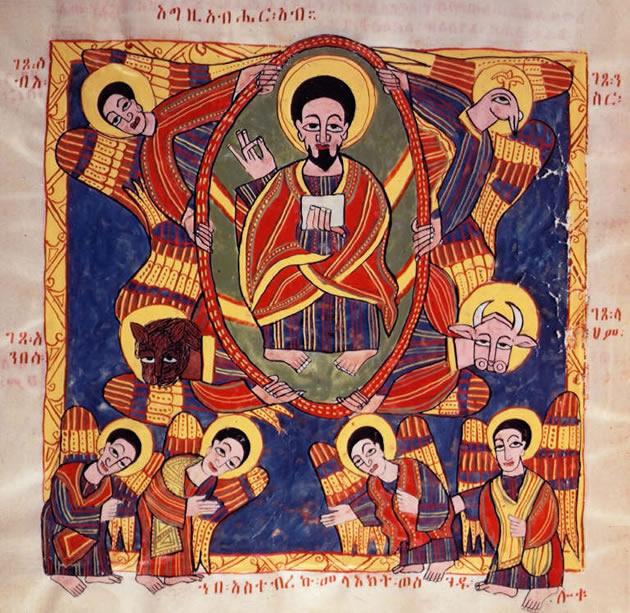Chapter Talk – 13th Sunday of the Year – cycle-A, June 28, 2020
When we each professed our monastic vows at our solemn profession, was not our ‘yes’ total? If we reflect on the ‘burning’ feeling in our hearts at that time, there was a strong affect and love within our ‘yes’; we were aware (at least I hope we were aware!) that our ‘yes’ was total, we were ready to give our all for the ‘pearl of great price’ (Mt 13:46). Our ‘yes’ was not lukewarm, not sometimes ‘yes’ and sometimes ‘no’. However, as we live the ‘yes’ we professed, we struggle with such attitudes as: I don’t feel like it today, or, just this time ‘my will’. To live our commitment in a ‘total’ way is not so easy, when it is to be lived out day by day.
We hear in the first pericope of today’s gospel Jesus saying: ‘Whoever loves father or mother more than me is not worthy of me…and whoever does not take up their cross and follow me is not worthy of me. Whoever finds their life will lose it, and whoever loses their life for my sake will find it’ (Mt 10:37-39). Hans Urs von Balthasar crystallizes the meaning of these verses with these words: “daring to lose all of one’s own” in order “to gain oneself in Christ” (Light of the Word, p.104). Does this not speak of the total extent of following Jesus? When we ‘dare to lose all’, there is an outcome: the gaining of one’s true self in Christ. And less we wish to qualify in some way what it means to say ‘yes’ in a total way and follow Jesus, what about this gospel passage from St. Luke: Another would-be disciple said him: ‘I will follow you, Lord, but first let me go and say good-bye to my people at home’ (Lk 9:62). And what is Jesus’ reply: ‘Once the hand is laid on the plough, no one who looks back is fit for the kingdom of God’ (Lk 9:62). ‘Looking back’ in this context turns us towards what we are leaving behind. It indeed waters down our ‘yes’ and becomes a temptation to lure us away from the radicality of saying ‘yes’. No turning back, keep your mind and heart focused on who you are following and the demands of the call….the demands of living our ‘yes’.
Dom Bernardo Olivera, the former Abbot General of our Order, in reflecting on his conversation with Dom Christian de Cherché, superior of the Atlas community, said he now (because earlier he did not) saw no contradiction with the phrase “monks and martyrs.” Dom Bernardo continues: “We all need faithful witnesses, who speak words of blood from the endless source of their first love. We need followers of Jesus who are ready to follow him to the end, eager to embrace the cross of forgiveness that gives freedom and salvation” (Spiritus, “Love and Forgiveness, A Christian Theological Point of View”, Lucchetti Bingemer, Fall-2019, p.241-242). ‘The endless source of their first love’: the professing of our monastic vows continues to be a living memory. Thus, it is an ‘endless source’ of love, which has become the foundation for living our monastic life. This living memory continues to burn in our hearts.
To grow in the monastic way means an ongoing process of conversion. To use two different expressions to express the same idea, it means the martyrdom of the heart, the breaking open of the heart. In Dom Bernardo’s words: “By being monks every day we are martyrs every day. To maintain our witness at a deep level in every day life demands more courage and bravery than to testify one time through a single act, so supreme be it” (p.242). This reflects back to where I began: our monastic commitment demands a total self-offering (daily), if we are to be bearers of the gospel way in a monastic context.
“Whoever finds their life will lose it, and whoever loses their life for my sake will find it” (Mt 10:39). Fr. Simeon, who has a linguistic background, in his commentary on this gospel sentence, translates the Greek word ‘lose’ with the word “clutches” (Fire of Mercy, Heart of the Word, vol.1, p.613). So, whoever ‘clutches’ their life, or whoever ‘clutches’ their self, shall, in Fr. Simeon’s translation, “destroy” it. These are strong images and should cause us to ponder! Losing our lives, dying to aspects of self, is an ongoing process. Self-knowledge is key to help us learn and to discover precisely what we are to lose of our lives or what of our self needs to die. Whatever we lose or die to daily, has an outcome: the forming and building up of our true self.
Now I could end my talk here. However, I found that Sr. Sandra Schneider’s comments give us different images in describing religious commitment today. She describes the call of God as “God’s claim upon one’s life” (New Wine Skins, Reimagining Religious Life Today, p.80). It is a stimulating image that aptly describes what I believe we each have experienced. This is what motivates us to give all, and in the giving, to not count the cost. The Divine claim upon our lives, then, brings us into the heart of the struggle. In the words of Schneider, “the diabolic temptation to absolutize the self” (p.80). As we live ‘God’s claim upon our lives’, we will face this pull to ‘absolutize the self’. Let us continue to live God’s claim upon our lives by taking up our cross, and not being afraid to die to the selfish stuff that places us and not Christ at the center of our choices and our daily living.


